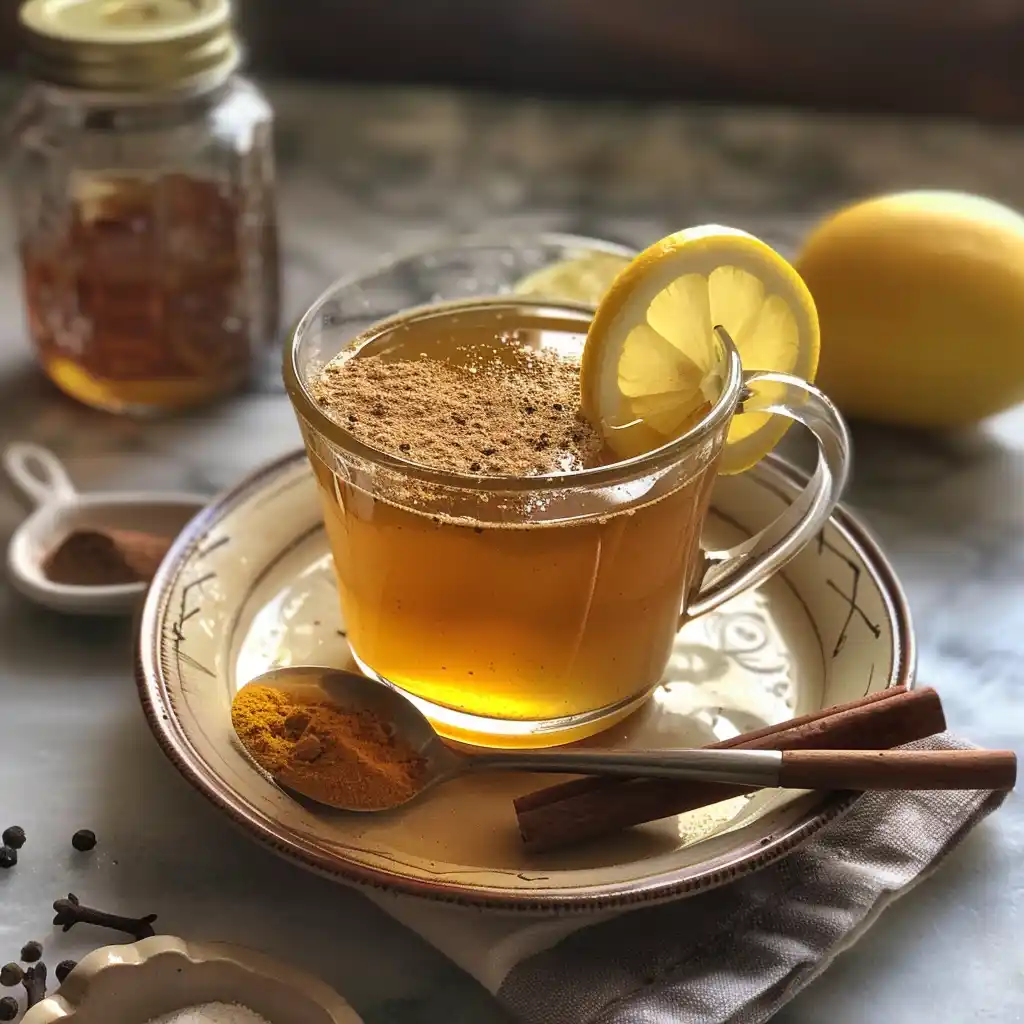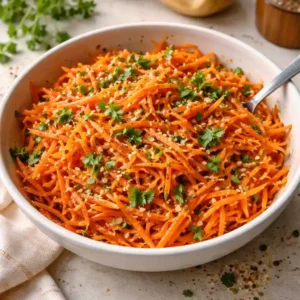Our honey recipe for Alzheimer’s journey began the way many of my best kitchen stories do—out of curiosity and love for someone close to me. Watching my grandfather’s memory slip in small ways led me to start researching natural ingredients that people around the world have used for centuries. I didn’t want a cure—I just wanted to offer something comforting, simple, and grounded in tradition.
This article dives deep into a unique, easy-to-make honey-based recipe that many believe may gently support memory and brain clarity—especially as we age. While I’m not a doctor, I’ve been obsessed with discovering wellness recipes that feel good, taste good, and have cultural roots in wellness practices from different parts of the world.
If you’re looking for something that blends nature with simplicity, and may support your memory wellness routine, you’re in the right place. We’ll walk through the history of honey and the brain, the best kinds of honey to try, how to safely enjoy it, and what you can mix with it for even more traditional benefits.
Check out this natural fermented garlic and honey blend—it’s one of my favorite foundational mixes to build on.
Let’s begin with where honey’s relationship with memory all began.
Print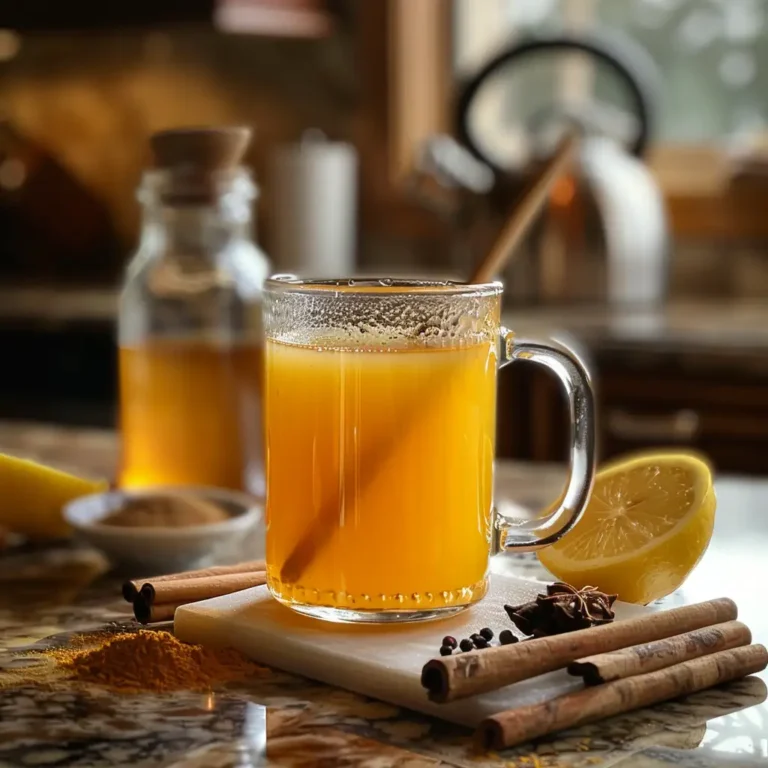
Honey Recipe for Alzheimer’s
A comforting honey-based memory support mix rooted in tradition, blending raw honey with turmeric, cinnamon, lemon, and warm water for a mindful daily ritual.
- Total Time: 5 minutes
- Yield: 1 serving 1x
Ingredients
- 1 tablespoon raw wildflower honey
- 1/2 teaspoon ground turmeric
- 1 pinch black pepper
- 1/2 teaspoon Ceylon cinnamon
- Juice of 1/2 lemon
- 1 cup warm water (not boiling)
Instructions
- In a mug, add honey first so it dissolves smoothly.
- Add turmeric, cinnamon, and black pepper.
- Squeeze in lemon juice.
- Gently pour warm water over the mixture.
- Stir slowly until well combined.
- Sip quietly as part of your morning ritual.
Notes
Use raw wildflower honey for the best flavor and antioxidant profile. For consistency, you can pre-mix the dry ingredients for the week in a small jar.
- Prep Time: 5 minutes
- Cook Time: 0 minutes
- Category: Wellness Drink
- Method: No-Cook
- Cuisine: Traditional
Nutrition
- Serving Size: 1 cup
- Calories: 65
- Sugar: 16g
- Sodium: 1mg
- Fat: 0g
- Saturated Fat: 0g
- Unsaturated Fat: 0g
- Trans Fat: 0g
- Carbohydrates: 17g
- Fiber: 0.5g
- Protein: 0g
- Cholesterol: 0mg
How Honey Has Been Traditionally Linked to Brain Health
When I first started exploring natural ways to support memory, I was surprised by how often honey showed up in traditional remedies. Across continents and cultures, honey isn’t just a sweetener—it’s been used for centuries as a gentle, nourishing tool to support overall wellness. The idea of creating a honey recipe for Alzheimer’s started to feel less like a shot in the dark and more like a rediscovery of something old and treasured.
A Look at the History: Honey in Ancient Medicine
In traditional Chinese medicine, Ayurvedic texts from India, and even ancient Egyptian records, honey was often recommended for fatigue, focus, and longevity. While no ancient healer would have used the term “Alzheimer’s,” their focus on mental clarity and memory support sounds very familiar today. I love how this reflects the time-tested belief that food—especially whole, natural food—can gently support our brain and body.
When crafting my honey recipe for Alzheimer’s, I wanted something that didn’t just sound “healthy” but was rooted in cultural stories passed through generations. My Moroccan aunt used to drizzle honey over soaked almonds every morning. She believed it “fed the brain,” and now that science is catching up with tradition, I see where that wisdom came from.
Cultural Beliefs: Honey’s Role in Memory and Longevity
In Greek tradition, honey was considered the “nectar of the gods,” often associated with vitality and sharpness of mind. In Islamic culture, it’s mentioned in the Quran as having healing properties. This cross-cultural reverence for honey adds emotional weight to the honey recipe for Alzheimer’s I’m sharing with you—it’s not just about memory. It’s about holding onto moments, stories, and connections.
Don’t miss our honey trick recipe for memory loss—it’s another beautiful spin on this idea.
The more I read and tried things myself, the more convinced I became that a daily honey recipe for Alzheimer’s could be a loving ritual—not a miracle cure, but a small act of hope and sweetness in someone’s day.
The Nutritional Profile of Honey That Supports Brain Function
There’s something incredibly comforting about making a honey recipe for Alzheimer’s that feels good both emotionally and nutritionally. While I often turn to ingredients based on their stories, I also love understanding what makes them tick under the surface. With honey, the deeper you look, the more you realize it’s more than a natural sweetener—it’s a nutrient-rich food that may gently support brain wellness.
Natural Sugars and Cognitive Energy
One thing I noticed after adding my honey recipe for Alzheimer’s to my morning routine was how energized I felt. That’s because honey contains natural glucose and fructose—simple sugars that may give the brain a steady source of fuel. Unlike processed sugars that spike and crash, raw honey offers a slower, more sustained energy lift. Some believe this may be helpful for seniors who often deal with brain fog or fatigue.
When I make my morning honey mix, I pair it with warm water and lemon. It’s easy, it tastes like a hug, and it’s become part of a comforting daily ritual. I’ve read that in traditional medicine, honey has long been believed to “awaken” the mind. It’s not surprising that building a honey recipe for Alzheimer’s can fit so beautifully into this idea.
Antioxidants in Honey and Their Potential Benefits
What truly makes a honey recipe for Alzheimer’s interesting is the high level of antioxidants found in raw honey. These include flavonoids and polyphenols—compounds that may protect cells from oxidative stress. Since Alzheimer’s has been associated with oxidative damage in the brain, it’s no wonder that many people look to antioxidant-rich foods as part of a brain-friendly lifestyle.
When I researched further, I learned that certain types of honey—like Manuka and wildflower—may offer even higher levels of these beneficial compounds. That’s why choosing the right honey for your honey recipe for Alzheimer’s really matters. For example, I love using wildflower honey because of its complex, earthy flavor and its seasonal nutrient diversity.
Curious about how different honeys taste and work? Check out this foundational honey trick recipe that inspired much of what I do now.
This nutritional side of honey makes it feel like more than just a sweet addition—it becomes a conscious, nourishing ingredient that aligns with memory care goals. Every spoonful of my honey recipe for Alzheimer’s feels like a small, deliberate act of love.
Best Types of Honey for Brain Support and Alzheimer’s
When creating a honey recipe for Alzheimer’s, one of the first decisions I had to make was choosing the right kind of honey. Not all honey is created equal. The flavor, thickness, and even the nutrient content can vary dramatically depending on the source. From my kitchen experiments to conversations with friends abroad, I’ve found that the type of honey you use can change everything—taste, texture, and maybe even how it supports your daily wellness.
Raw vs. Processed Honey: Which One to Choose
If there’s one thing I’ve learned, it’s this: raw honey wins every time. Processed honey often goes through high heat that may strip away its enzymes and antioxidants. When you’re making a honey recipe for Alzheimer’s, those raw nutrients might be what matter most. I personally go for small-batch or locally sourced raw honey. The floral aroma and thick texture feel alive—like it came straight from the hive.
One day at a farmer’s market, I stumbled on a jar of golden wildflower honey. The vendor told me the bees gathered nectar from sage, lavender, and wild herbs. That moment turned into my daily ritual. It’s now the base of my morning honey recipe for Alzheimer’s, and every spoonful reminds me of that sunny afternoon.
The Most Mentioned Varieties: Manuka, Acacia, and Wildflower
Over the years, I’ve tried several types, and three always stand out when it comes to memory-supporting traditions. Manuka honey, especially from New Zealand, is thick, earthy, and rich in antibacterial properties. It’s often praised for its immune-supportive profile, but many love using it in their honey recipe for Alzheimer’s for its overall potency.
Acacia honey is light, smooth, and doesn’t crystallize as quickly. It’s great if you prefer a milder flavor. And wildflower honey, my personal favorite, offers a balanced mix of different blossoms, giving your blend natural variety and complexity. There’s something magical about using wildflower in a honey recipe for Alzheimer’s—it feels spontaneous, seasonal, and alive.
Want to branch out? Don’t miss our honey recipe for brain fog, which offers another tasty take on supporting clarity with simple ingredients.
The beauty of choosing your honey lies in the experience. You’re not just picking a product—you’re crafting a memory-supporting ritual that can bring peace and warmth to your day. For me, a good honey recipe for Alzheimer’s starts with the kind of honey that makes you pause, smile, and savor the moment.
The Ultimate Honey Recipe for Alzheimer’s Wellness Routine
After months of experimenting with blends, I finally landed on a honey recipe for Alzheimer’s that felt both delicious and meaningful. It’s not a complicated mix, but it’s built with intention—from the ingredients I choose to the quiet morning space I prepare it in. This is more than just a drink—it’s a gentle ritual that may support memory and offer emotional comfort, especially for loved ones navigating memory changes.
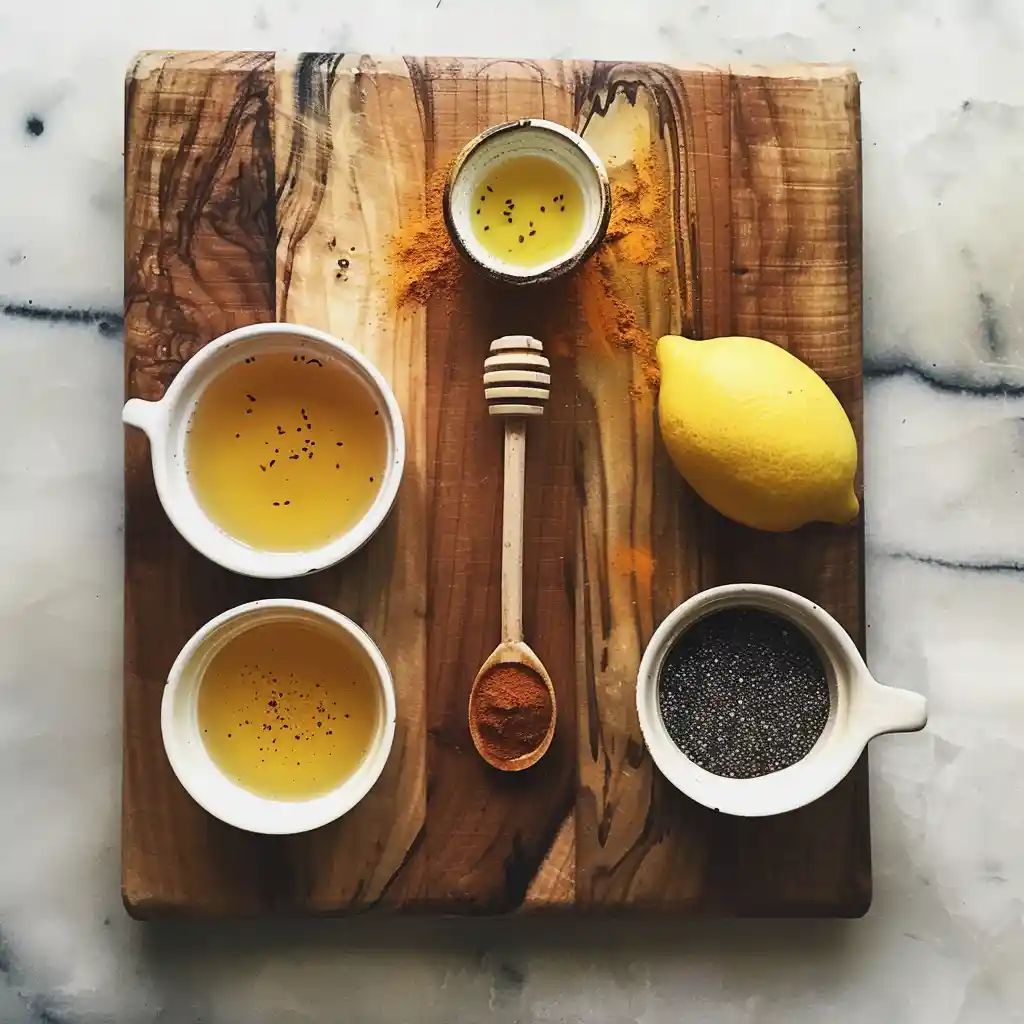
My Personal Honey Memory Mix Recipe (With Ingredients & Instructions)
I keep this recipe simple and soothing. The idea is to create something easy to prepare daily, without needing special equipment or rare ingredients. Here’s what I use:
- 1 tablespoon raw wildflower honey
- 1/2 teaspoon ground turmeric
- 1 pinch of black pepper (to activate curcumin)
- 1/2 teaspoon Ceylon cinnamon
- Juice of 1/2 lemon
- 1 cup warm water (not boiling)
Instructions:
In a mug, add honey first so it dissolves smoothly. Follow with turmeric, cinnamon, and black pepper. Squeeze in lemon and gently pour warm water over the mix. Stir slowly. I usually sip this quietly while looking out the window—it’s become a grounding way to start my day.
This honey recipe for Alzheimer’s isn’t based on promises, but on tradition and intention. The ingredients, especially turmeric and cinnamon, have long been appreciated in natural circles for their anti-inflammatory and circulation-boosting qualities. Together with raw honey, the blend offers warmth and depth, both in flavor and feeling.
How I Incorporate This into My Morning Ritual
Every morning around 7:30, I prepare this mix. I use it as a signal to slow down and be present, especially when caring for an aging family member. Sharing a honey recipe for Alzheimer’s with a loved one becomes a shared moment of care—gentle, sweet, and steady.
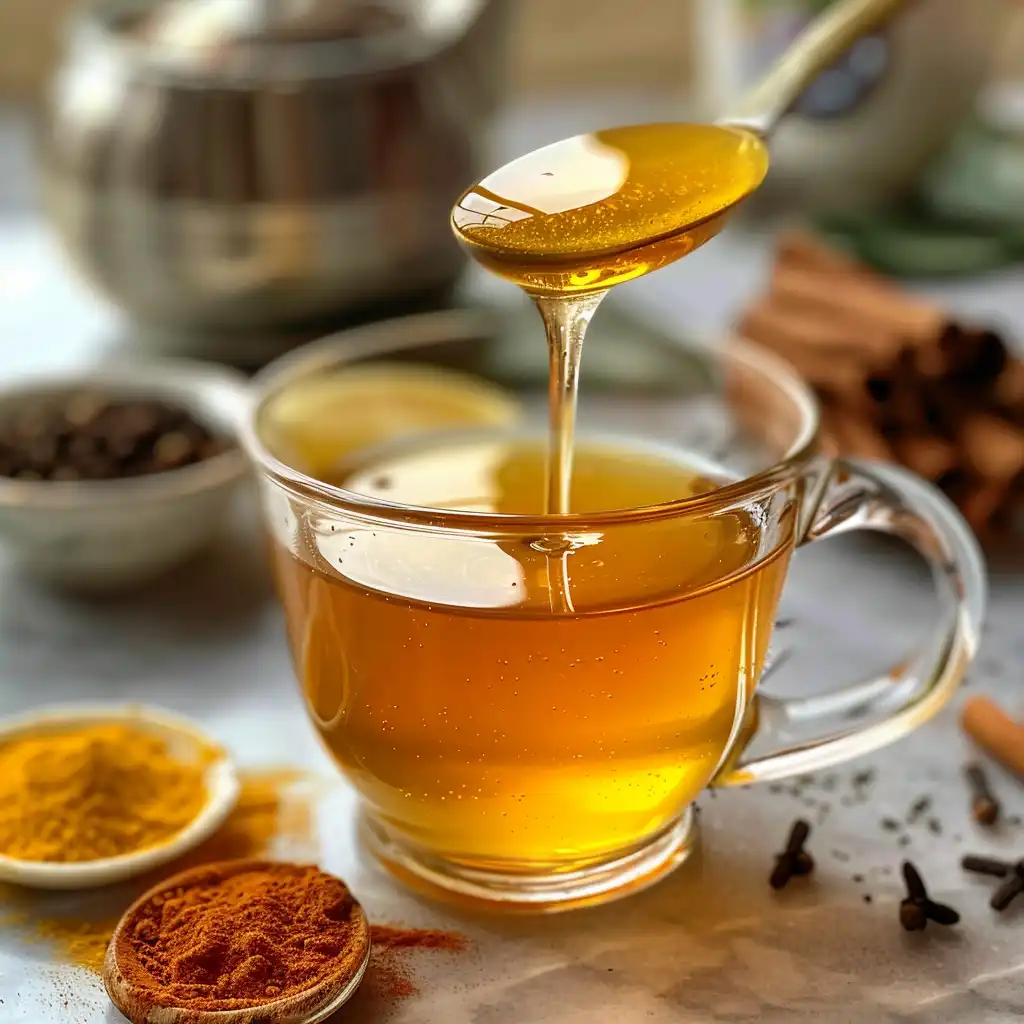
Sometimes I’ll prep the dry mix in a jar for the week, so I only need to add honey and lemon each morning. Keeping this honey recipe for Alzheimer’s part of my routine has brought more than nutritional value—it’s brought peace. A small act, repeated daily, becomes an anchor. And in the realm of memory and aging, every anchor matters.
What You Can Mix with Honey to Support Memory Naturally
As I refined my honey recipe for Alzheimer’s, I kept asking myself: What other natural ingredients could I mix with honey that would traditionally support memory and focus? While honey itself is grounding, its real magic comes alive when paired with a few powerful partners. Over time, I found two combinations that I now swear by—not just for taste, but for how they fit into a calm, mindful memory-care routine.
Turmeric and Honey: A Traditional Brain Blend
Turmeric is more than a kitchen spice. In many cultures, it’s seen as a sacred root, believed to support the brain and reduce inflammation. When blended with raw honey and a touch of black pepper, it creates a golden tonic that’s as soothing as it is satisfying. This is one of the foundational combos in my daily honey recipe for Alzheimer’s. It’s gentle on the stomach, naturally warming, and easy to prepare before breakfast or as a midday reset.
You don’t need a fancy setup—just a mug, a spoon, and a few pantry staples. My friend from Sri Lanka first showed me how to mix turmeric and honey into a paste. I later added that into warm lemon water and realized I had a new version of my honey recipe for Alzheimer’s—rich in flavor and rooted in tradition.
Cinnamon and Honey for Circulation and Focus
Cinnamon, especially the Ceylon variety, brings both warmth and clarity. Some believe it helps with circulation, which may in turn support better brain oxygenation. I noticed when I added cinnamon to my morning blend, my mind felt sharper—maybe it was placebo, maybe it was real, but it felt good.
This mix has become a staple in my household. It’s one of those combinations that doesn’t just make sense nutritionally—it tastes like something comforting from childhood. And when memory care is involved, comfort matters. That’s why it continues to play a role in how I shape my honey recipe for Alzheimer’s each day.
If you’re looking for new twists on brain-friendly blends, discover great ideas like this Brazilian honey recipe that I found recently—it’s earthy and beautifully balanced.
Each time I mix one of these blends, I feel like I’m doing something kind for my brain. That’s the heart of every honey recipe for Alzheimer’s I’ve tried—it’s about thoughtful choices and small, sweet moments that add up.
Safe Daily Honey Consumption for Seniors and Memory Health
One of the most common questions I get when sharing my honey recipe for Alzheimer’s is: “How much honey is safe to have each day?” It’s a great question—because while honey is natural and nutrient-dense, moderation really is key, especially for older adults managing memory concerns or blood sugar sensitivity.
How Much Honey Is Too Much?
In my experience, about one tablespoon of raw honey per day is the sweet spot. It’s enough to enjoy the flavor and potential benefits without going overboard. When crafting a honey recipe for Alzheimer’s, I stick to this amount whether I’m mixing it into warm water, tea, or blending it with other traditional ingredients like turmeric or cinnamon.
It’s also helpful to think about when you’re consuming it. I typically enjoy my blend first thing in the morning—on an empty stomach, with warm (not hot) water—to ease digestion and kickstart my day. That’s when I feel the most clarity and comfort from my honey recipe for Alzheimer’s.
Best Times to Take Honey for Mental Clarity
Some folks prefer taking their honey mix before bed, especially if they include calming herbs like chamomile or ashwagandha. I’ve tried that too, and it does create a sense of peace before sleep. But for mental alertness and focus, mornings work best for me. That’s when I feel like my mind and body are most open to receiving nourishment.
If you’re sharing your honey recipe for Alzheimer’s with an elderly parent or grandparent, keep things simple. Use a small cup, serve it warm, and share the moment. I often sit beside my grandfather, both of us sipping slowly in silence. These are the memories I hold close—made even sweeter by this mindful daily habit.
Want to try a version that’s quick and beginner-friendly? Learn more about this honey trick recipe for memory loss—it’s a good starting point if you’re short on time but still want to stay consistent.
In the end, the safety of your honey recipe for Alzheimer’s comes down to balance. A little goes a long way, and consistency is more powerful than excess. Small sips, shared stories, and warm mugs—that’s where the magic lives.
Can Honey Be Good for Alzheimer’s? What Some People Believe
When I first started developing my honey recipe for Alzheimer’s, it was less about science and more about care. I didn’t expect answers—just a sense of hope. Over the years, though, I’ve heard dozens of heartfelt stories from friends, readers, and fellow caregivers who’ve added honey into their routines with surprising results.
Anecdotal Stories from My Friends and Readers
My neighbor, Sara, told me about her father who had been struggling with mild memory issues. Every morning, she’d prepare a warm cup of water with honey and turmeric. “It gives us a moment together,” she said. “Whether or not it helps his memory, it’s something we both look forward to.” That’s the part people often miss—your honey recipe for Alzheimer’s can be as much about emotional nourishment as physical.
Another reader shared how her grandmother, who rarely drank tea, started enjoying a blend of raw honey and chamomile at night. They didn’t call it a brain tonic—they just called it “sweet tea time.” These simple routines, built around love and honey, become gentle rituals that may help build consistency, comfort, and connection. That’s what I always return to in my own honey recipe for Alzheimer’s—small acts, deeply rooted.
Why Honey Might Support Memory, According to Traditional Wisdom
In Ayurvedic and folk traditions, honey has often been used as a delivery agent—mixing herbs into honey makes them more palatable and, some believe, more effective. While we can’t make medical claims, it’s easy to understand why a food like honey—rich in natural sugars, antioxidants, and enzymes—would become part of memory support practices.
My own grandmother used to say that honey “feeds the heart and clears the head.” Now, every time I make my honey recipe for Alzheimer’s, I think about her humming softly in the kitchen. That sensory memory, of honey being stirred into tea and laughter echoing in the background, is sharper than ever.
If you’d like to try another gentle variation, check out this fermented garlic and honey combo. It’s not just functional—it’s flavorful and steeped in tradition.
The beauty of a honey recipe for Alzheimer’s is that it can be adapted to your story, your family, and your rhythm. It’s not just what’s in the cup—it’s the intention that surrounds it.
How to Use Honey for Anti-Aging Benefits
While the main focus of my honey recipe for Alzheimer’s has always been memory support, I’ve noticed some lovely side benefits—especially when it comes to how I feel and look. Honey has long been celebrated in natural wellness circles not just for what it does inside the body, but for how it nourishes the skin and slows visible signs of aging. Over time, I found ways to extend my honey routine beyond just the morning cup.
Honey as a Skin and Cell Booster (Inside and Out)
Let’s talk glow. Raw honey is naturally rich in enzymes, amino acids, and antioxidants that may support skin elasticity and hydration. When I began including a honey recipe for Alzheimer’s into my daily rituals, I wasn’t thinking about skin. But after a few weeks, my friends started commenting that I looked more “rested.” Maybe it’s the hydration. Maybe it’s the ritual. But something about honey works deeply.
I now use honey in simple face masks about twice a week. Just a teaspoon of raw honey, a touch of yogurt, and a few drops of rose water. I apply it while sipping my warm honey blend, making it a full sensory reset. It’s not a miracle fix—but it’s soothing, calming, and connects my internal care with external care. Just another reason I keep coming back to my honey recipe for Alzheimer’s as an all-around wellness tool.
My Favorite DIY Honey Face Mask for Mature Skin
Here’s the face mask I love for hydration and softness:
- 1 tsp raw honey
- 1 tsp plain Greek yogurt
- 3–4 drops rose water (optional)
Mix and apply for 10–15 minutes, then rinse with warm water. I often do this before bed, especially on days when I’ve taken extra care with my nutrition. It’s a moment of pause—like a reward for showing up for myself.
I’ve learned that using a honey recipe for Alzheimer’s doesn’t stop at memory—it ripples into other areas of wellness too. From better digestion to softer skin, honey feels like nature’s gentle multitasker.
Want more natural beauty boosts? Don’t miss our guide to this fermented garlic-honey recipe, which many use for immune and skin health as well.
In the end, every part of your wellness can benefit from care and consistency. That’s what my honey recipe for Alzheimer’s journey has taught me: daily intention brings results that go far beyond the obvious.
Common Questions About Honey and Memory: Answering Your FAQs
I get messages every week from folks who are curious, skeptical, or just hopeful about my honey recipe for Alzheimer’s. And honestly, I welcome all of it. That’s what makes this journey feel alive—we’re all trying to care for our minds and our loved ones in ways that feel gentle, comforting, and rooted in tradition. Below are the most common questions I receive, answered from my own experience and understanding.
What can you mix with honey to help your memory?
For me, turmeric and cinnamon have been the most powerful companions. Turmeric is believed to support brain health, and when you mix it with black pepper and honey, it creates a warm, earthy blend. Cinnamon adds circulation support and a nostalgic flavor. I’ve also tried adding lemon or a splash of ginger tea to enhance my honey recipe for Alzheimer’s—each variation brings its own charm.
These questions remind me why I started this path in the first place—to feel more connected, more nourished, and more present. Whatever your reason for seeking out a honey recipe for Alzheimer’s, know that you’re not alone. This is a path many of us are walking—spoon by spoon, day by day.
A Sweet Ritual That Brings Comfort and Memory Support
As I look back on this journey, it’s clear that crafting a honey recipe for Alzheimer’s has been about more than ingredients—it’s been about intention. Each morning, when I reach for that jar of raw honey and start stirring, I’m reminded that healing isn’t always a loud, dramatic event. Sometimes, it’s the quiet consistency of a simple act, repeated daily, that brings the most peace.
Over the past few months, this ritual has helped me feel more connected to my loved ones—especially those navigating memory challenges. Sitting beside my grandfather with two mugs of our warm honey blend, I’ve seen firsthand how a routine can create moments of clarity, even if just for a few minutes. That’s the real beauty of a thoughtful honey recipe for Alzheimer’s—it may not change everything, but it changes the moment you’re in.
If you’re thinking of starting your own version, keep it simple. Choose ingredients you trust, make it with care, and give it time to become part of your day. And if you’re looking for ideas, check out this foundational memory blend to inspire your first cup.
For more feel-good food ideas and gentle wellness tips, come hang out with me on Pinterest or join the cozy community on Facebook. I share new recipes weekly, each one rooted in love, tradition, and a whole lot of curiosity.
